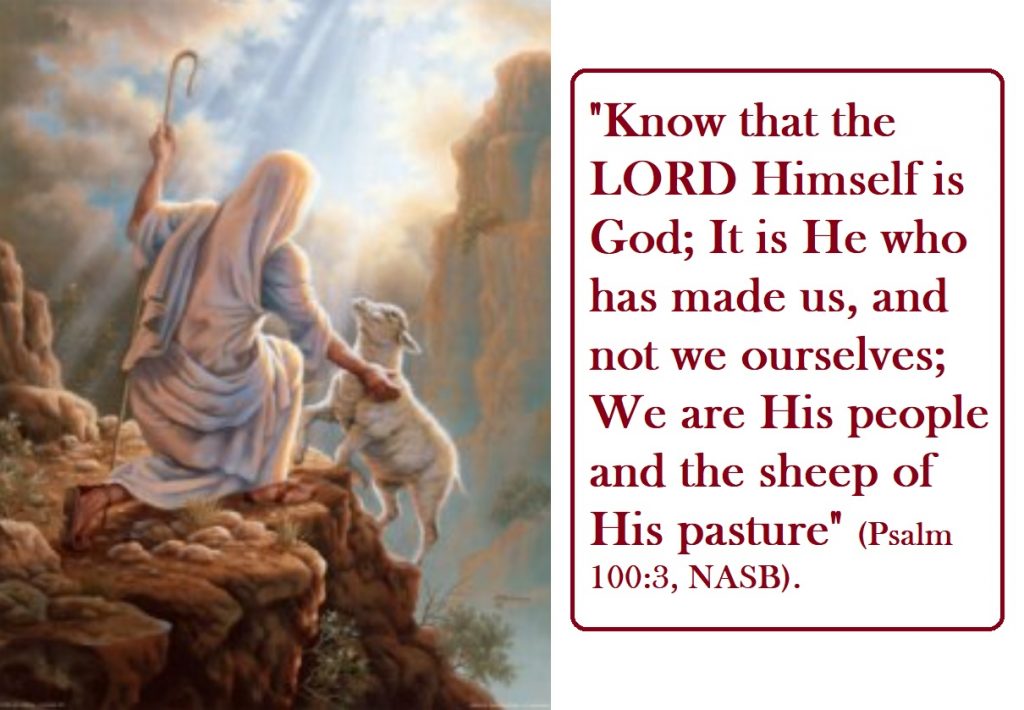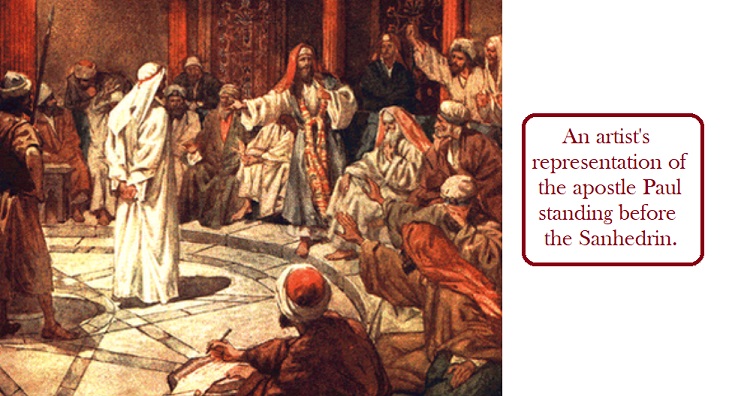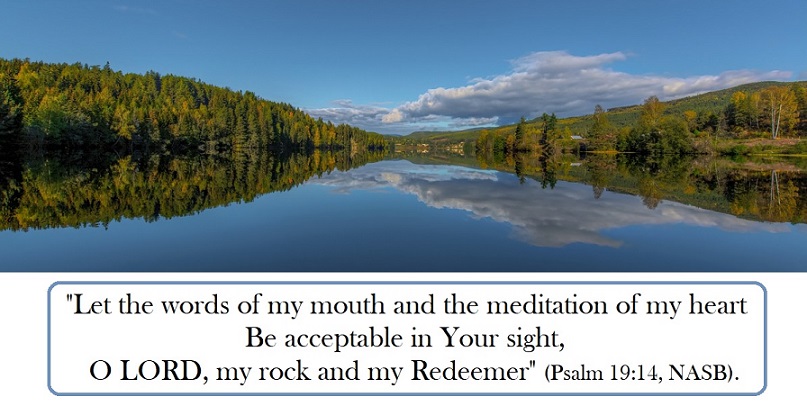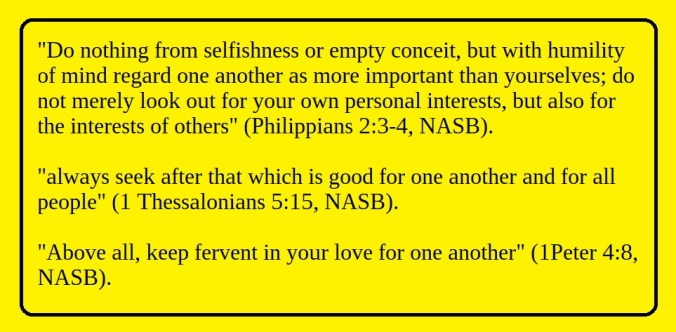“Go therefore and make disciples of all the nations…teaching them to observe all that I commanded you; and lo, I am with you always, even to the end of the age” (Matthew 28:19-20, NASB).
——————–
Contents:
1) “The Kingdom Is Like…” — Figures Describing God’s People (Robert F. Turner)
2) News & Notes
——————–

-1-
“The Kingdom Is Like…” — Figures Describing God’s People
Robert F. Turner
Is the church (God’s people) the body of Christ (Eph. 1:23); or is it LIKE (in some respects) a body; and since He is head over these people, therefore, LIKE the body of Christ? Are we literally His hands, feet, etc. or are we figuratively His body?? To ask such questions is to answer them in any sane mind. Yet, many seem reluctant to apply common sense reasoning to Bible figurative language.
The most common and effective way to teach an unknown is to compare it to something known. The common simile says this is like that. His remark was like a knife — it cut, figuratively; or, it had a point; or, it was mounted on a handle. The exact use is left to the user, and is usually indicated in the context. When the comparison is made to an event or happening this is called a parable, or a fable (depending on the type of story told as illustration). In some figures of speech the like is omitted (“tell that fox” Lu. 13:32) or is a deliberate exaggeration (“running like lightening”); but all convey a message limited by context and intent. Metaphorical language is so common it is practically inseparable from communication. We use it all the time, and I just finished using it. (“All” the time? or just much of the time?)
One need not know the names or the technical descriptions of figures in order to properly use and interpret them. It doesn’t take a genius to know we do not drink a container; or that Jesus, holding bread in his hand as he spoke, did not mean “this is (literally) my body” (1 Cor. 11:23-f). Bread and fruit of the vine symbolize or represent the body and blood of Christ. But symbolism, a form of figurative language, is also subject to the limitations placed upon it by the author. We have no right to alter the elements of symbolism established by the Lord and the Holy Spirit, or to place significance upon circumstances or details which were given no significance by divine authority.
Some figures seem to invite unauthorized extension more than others. The kingdom figure is much abused by repetition of the Jewish materialistic concept. Some expect Christ to sit on the literal chair of David, ruling over a this world realm. His teaching concerning the nature of His kingdom (Mk. 12:34; Lu. 17:20-21; Jn. 18:36-37) and the many references to its present existence (Acts 2:30-33; Col. 1:13) seem to make no impression. And the “child of God” figure is extended to teach a right of fellowship for the “unborn child,” or that once one is a “child” he forever remains in God’s family. Because a literal child so remains, or a literal king has a gold throne, many do not hesitate to assert these things of the figures. Did King Herod have a bushy tail?
The same illustrative material may be used in more than one figure and with different meanings. We become a child of God by birth (or adoption) but the child figure may also be used to emphasize the necessity for displaying characteristics of our heavenly Father (Jn. 8:38-47; Matt. 5:43-45). In every case, the author determines the use of his figures, and we must be content to make only the application authorized by context.
The people of God are those who hear, believe, and obey the call of the gospel of Christ (2 Thes. 2:14, Acts 2:37-41). Generally speaking, we are either in darkness (in sin, unacceptable unto God), or we are in the light (in truth, acceptable). Those who are acceptable unto God are described or designated by a multitude of figures, each emphasizing some particular characteristic of the saints. God’s people are LIKE workers in His vineyard, LIKE soldiers in His army, LIKE sheep in His flock. These are not different relationships — they are applied to the same people. When one becomes a branch upon Christ, the vine, he also becomes a lively stone, built upon Christ, the foundation. He enters one acceptable relationship, variously described by these figures.
Each figure has its own language or terminology. One is built upon the foundation, when God’s people are LIKENED unto a building; but he is born, when God’s people are LIKENED unto a family. It would be a mixing of figures to say one was born into a vine, or enlisted in a flock, or built into a family. If born of God is a mystical, better-felt-than-told process, then so is that of becoming a worker in the Lord’s vineyard, or a runner in the Christian race.
In each of these figures Christ is put in the prominent position. He is King in the kingdom, Shepherd of the flock, elder brother in the family, and head of the body. His position is not simply an honorary one, but its importance is established by its function. As head of the body, He directs its activities; as King, He rules all who will be subject to Him, who therefore make up His kingdom. He is the vine that gives life to each branch, and without whom there can be no fruit. He protects the sheep, and directs and pays the laborers. Christ is the foundation upon which each building block depends.
It is also important to note that in every figure the unit is an individual. If a man abide not, he is cast forth as a branch. Members of the body are saints, not congregations. The family of God is a brotherhood not a churchhood. His kingdom is made up of citizens, not of communities (as Campbell thought). This is a vital point. It establishes the direct relationship of saints to Christ. Our primary obligation is to be faithful to Christ, not to the church. The true church is not the object of our faith, but the result of faithfulness to Christ. It is the duty of each saint to maintain that faithfulness, and a faithful church will be the result of such fidelity.
Most figures have a central theme, and are given to teach a single point. When God’s people are likened unto a kingdom, RULE is the theme — God rules, through Christ, in the hearts of His people. But we may be told, “The kingdom is like” — a treasure — in value; or leaven — the way it is spread; or mustard seed — which from a small start produces big things. We should never make more of the figure than is obvious in its context.
Finally, no figure teaches a permanent relation. Our position in each is subject to our remaining faithful.
— Via Plain Talk, vol. 13, no. 10, pp. 4-5, December, 1976
——————–
-2-
News & Notes
Folks to be praying for:
Update (May 1) on Andy Berendt by his daughter Heather:
“We got a call at 1:40 requesting a zoom meeting between us, his doctors and my father.
“During the meeting, dad looked good and was happy to see us. He had just agreed to the blood transfusion and was concerned that he hadn’t made a good decision to do that but we assured him it was the right choice.
“The doctors said that he is not showing signs of an internal bleed and the surgeons found no area of concern with his intestines. He is no longer in sepsis shock and they were surprised how quickly he cleared that up. He is not on any blood pressure medications and his bp is back up to normal. He is on no pain medication and hasn’t been the entire time he was in the hospital.
“The doctors said that he is doing really well and they are thinking he will get out of icu tonight and as long as things progress in the right direction and nothing else changes, he should be able to come home in a few days and restart his cancer treatments.
“Thank you all for your prayers. We really appreciate them. Dad was very encouraged hearing that so many were praying for him.”
——————–
Bud Montero begins his 5 days of non-invasive procedures for prostate cancer tomorrow. They will run through Friday and require about 30 minutes each. We are glad that Bud has been given a very good prognosis for this.
James Medlock has not been able to walk for the last couple days. He has fallen 3 times in the last two or three weeks, and his Alzheimer has worsen. He also has developed sundown syndrome that had him up 4 nights and days without sleep. Three times his medication has been increased to improve this.
Jonathan Abbot’s mother continues with hemodialysis 3 days a week and chemotherapy once a week.
Ray Daugherty (Jim Lively’s brother-in-law) had a stroke last week, which had affected his memory and speech somewhat and slightly impaired his left side; but he is improving. He is now back home.
Rick Cuthbertson is still receiving chemo treatments every week except one out of each month. He has been alternating between a double dose one week, and a single the next and is tolerating it better than before. The kidney and colon cancer has been eliminated, and the spots on his lungs have continued to shrink.
Ann Vandevander continues to receive physical therapy 3 times a week in her home.
Emily Abbott Cox is now in almost her 33rd week of pregnancy.
Let us continue to remember Jim Lively, Rex & Frankie Hadley, Kelly Stoneheart, A.J. & Pat Joyner, Doyle & Joyce Rittenhouse, Shirley Davis, John Bladen, the Medlock family, and Kerry Williams in our prayers.
No additional sickness has been reported among us. But let us continue to keep each other in prayer during this time of social distancing — and especially those who have had infirmities and have been shut-ins even prior to our current situation.
——————–
The Steps That Lead to Eternal Salvation
1) Hear the gospel, for that is how faith comes (Rom. 10:17; John 20:30-31).
2) Believe in the deity of Jesus Christ (John 8:24; John 3:18).
3) Repent of sins (Luke 13:5; Acts 17:30).
4) Confess faith in Christ (Rom. 10:9-10; Acts 8:36-38).
5) Be baptized in water for the remission of sins (Mark 16:16; Acts 2:38; 22:16; Rom. 6:3-4; Gal. 3:26-27; 1 Pet. 3:21).
6) Continue in the faith, living for the Lord; for, if not, salvation can be lost (Heb. 10:36-39; Rev. 2:10; 2 Pet. 2:20-22).
——————–
Tebeau Street
CHURCH OF CHRIST
1402 Tebeau Street, Waycross, GA 31501
The following services are all cancelled until further notice:
Sunday services: 9:00 a.m. (Bible class); 10 a.m. & 5 p.m. (worship)
Wednesday: 7 p.m. (Bible class)
evangelist/editor: Tom Edwards (912) 281-9917
Tom@ThomasTEdwards.com
https://thomastedwards.wordpress (The new Gospel Observer website with pictures in WordPress)
http://thomastedwards.com/go (Older version of Gospel Observer website without pictures, but back to March 1990)
http://tebeaustreetchurchofchrist.org/
http://ThomasTEdwards.com/audioser.html (audio sermons)














